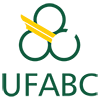
Título: Computational Thinking and Inquiry Learning in Science
Palestrante: H Ulrich Hoppe (University of Duisburg-Essen, Alemanha)
Data e local: Quarta-feira, 21 de agosto de 2019 às 16:00, Santo André, Bloco A, S-211-0
Resumo:
Although Seymour Papert had already used the term “Computational Thinking” (CT) in the context of the development of the Logo programming language that reached a wider distribution in the 1980’s, the current discussion of CT can be traced back to Wing (2006). Wing characterized CT by stating that it “involves solving problems, designing systems, and understanding human behavior, by drawing on the concepts fundamental to computer science”. The focus here is on ways of thinking and reasoning, which include representing information in the form of data structures as well as techniques for the specification of algorithms for data processing and analysis. Currently the practical teaching of CT skills is dominated by using so-called “visual block-based programming environments”. Yet, this practice (esp. with the Scratch environment) shows severe deficits in the adoption of computational abstractions so that other languages and constructive formal methods (e.g. Petri nets or grammars) should also be considered. Beyond its direct relevance as an essential skill for professions in information technology and computing systems, CT is also considered in important ingredient of scientific methods and scientific reasoning in general. Several recent suggestions combine the building of computational models and representations with the development of scientific understanding in areas such as physics or biology. The talk will lay out the foundations of Computational Thinking and will also report on experience with computational tools for scientific inquiry learning.
Biografia:
Dr. H. Ulrich Hoppe holds a full professorship in the area “Collaborative and Learning Support Systems” at the University of Duisburg-Essen (Germany). After his PhD on interactive programming in math education in 1984, Ulrich Hoppe has worked for about ten years in the area of intelligent user interfaces and cognitive models in HCI, before he re-focused his research on intelligent support in educational systems and distributed collaborative environments in 1995. With his COLLIDE Research Group he has participated in more than ten European projects on Technology-enhanced learning. He was one of the initiators of the European Network of Excellence Kaleidoscope (2004-07). Currently he is engaged in as a PI in a Research Training Group on “User Centred Social Media” funded by the German National Science Foundation since 2015. His research is focused on computational techniques for learning and knowledge building. He is particularly interested in combining network analysis techniques with other data mining methods in the study and support of online (learning) communities.
